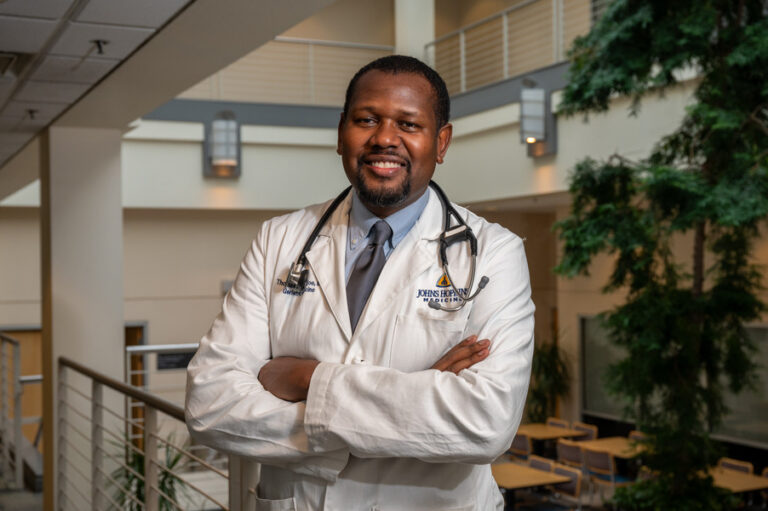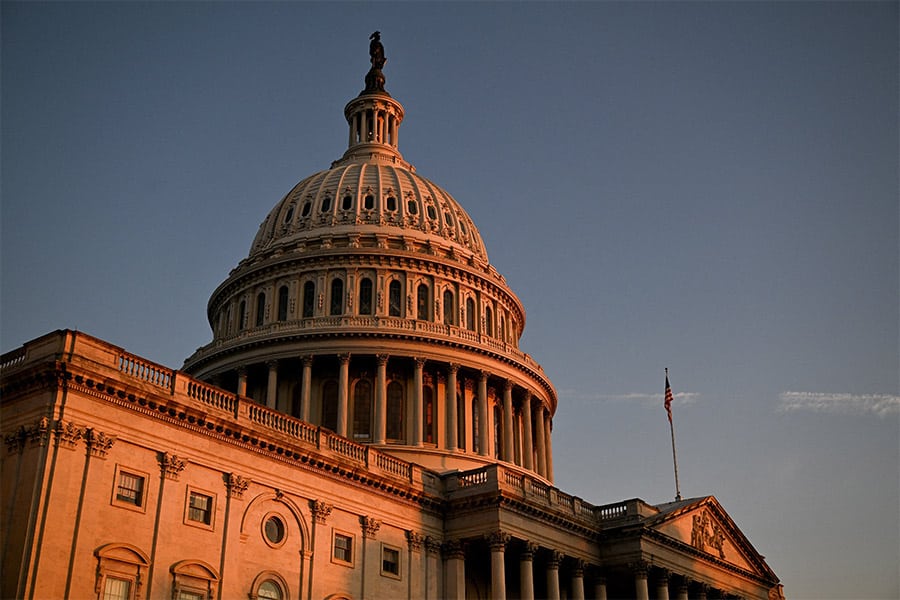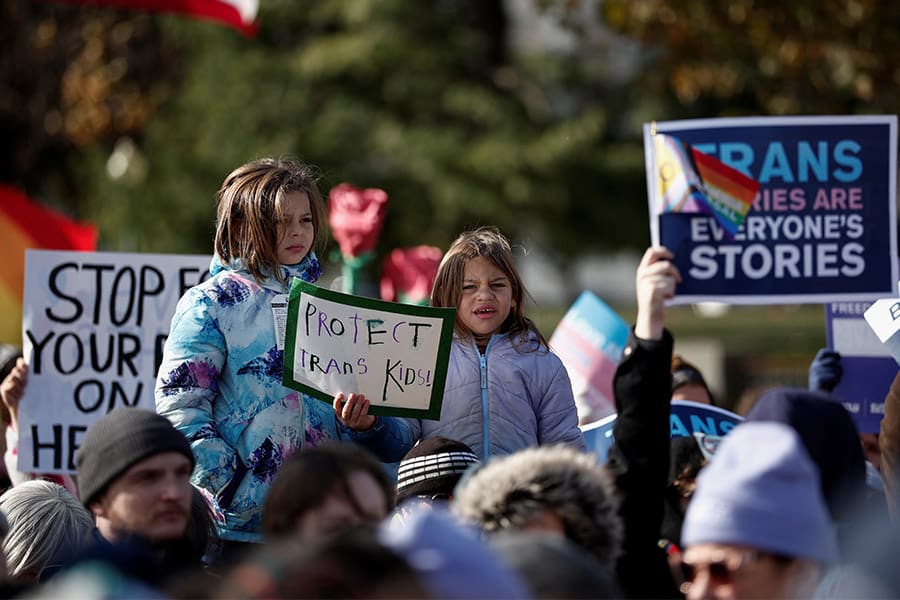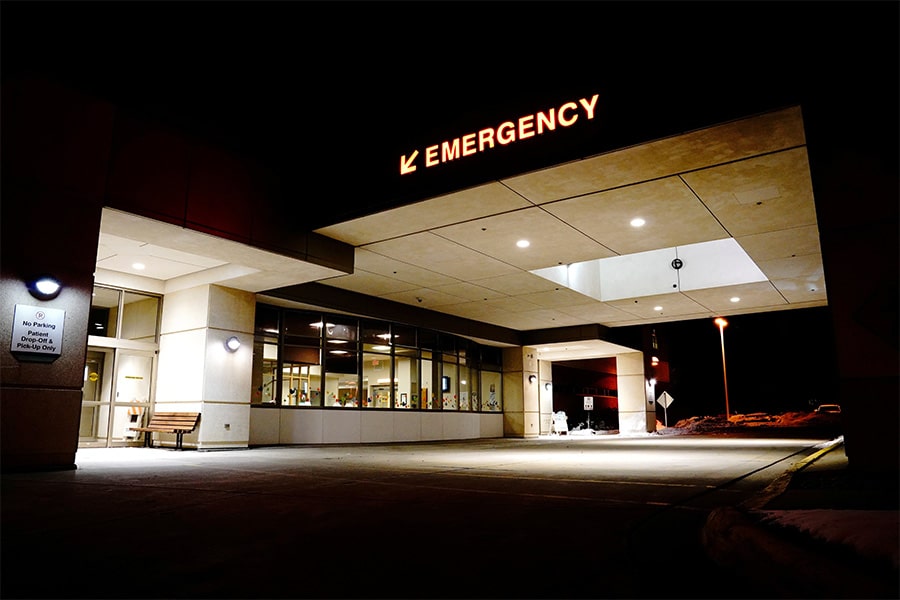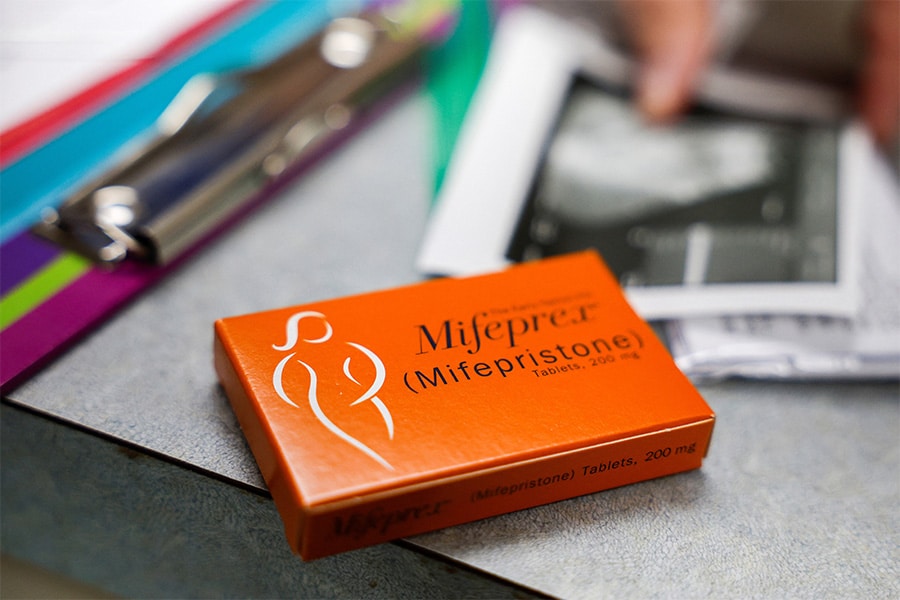During his formative years as a medical student, Dr. Thomas Cudjoe, an assistant professor in the division of geriatric medicine and gerontology at The Johns Hopkins University School of Medicine in Baltimore, was inspired in part to study aging closely after observing how his older landlord was living her life.
Cudjoe recalled how his landlord, well into her 70s, enjoyed interacting with younger students renting from her, while maintaining a busy schedule that included traveling abroad to teach English.
“Her sense of purpose and the connections she was still making with people really were inspirational to me,” Cudjoe said. “That experience helped me to decide to be someone who clinically worked with older people and did research on aging that engages them. I think I also got interested in aging because I had formative interactions with people like my grandparents. It became a mission for me.”
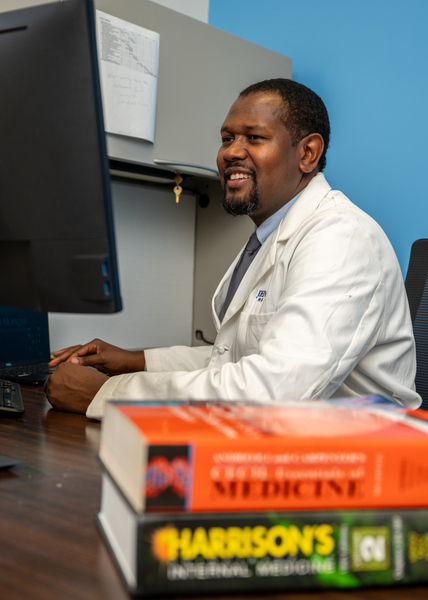
Over the past six years as a Hopkins faculty member, Cudjoe – a teacher, researcher and clinician – has pursued that mission by focusing on understanding the impact of social isolation on the elderly.
Cudjoe, who has co-authored numerous studies on the topic, says he was surprised years ago by how little the problem of social isolation and its detrimental effects on the quality of life had been considered in the medical community.
Cudjoe led a study, which found that one in four adults in the U.S. aged 65 and older had experienced social isolation.
“That is such a notable portion of the (elderly) population. We should be trying to do something to help those people,” said Cudjoe, a parishioner of Ss. Philip and James in Homewood. “Isolation can have a huge impact on mortality. Studies have found that people who were socially isolated had 20 to 30 percent higher levels of increased risks of dying sooner than people who were not isolated.”
Cudjoe also was a senior author of a 2022 study that revealed socially isolated senior adults have a 27 percent higher chance of developing dementia than older adults who are not isolated. The study tracked 5,022 dementia-free adults in the U.S. aged 65 or older – with an average age of 76 – and not living in a residential care facility. About 23 percent of participants were socially isolated.
Social isolation is defined as having few relationships and few people to interact with regularly. The study measured this based on whether or not participants lived alone, talked about “important matters” with two or more people in the past year, attended religious services or were part of social events.
Cudjoe said a variety of factors can lead to social isolation. There could be a lack of connection to a person’s family or broader neighborhood. There could be health issues, such as cognitive decline or the onset of hearing loss. Financially challenging conditions can play a role. Forced social distancing, which millions of Americans of all ages experienced during the coronavirus pandemic, affected the elderly before a vaccine was available.
“Since COVID, some older people have decided to move closer to their families, which have bonded more,” Cudjoe said. “Older people who have limited support and financial resources can have totally different experiences than those who have more money, although money is not the cure of all things. You can also be low on money, but still have a robust social network with kids and neighbors.
“Many older people also have more resiliency than others,” he added. “For people who are not functionally able to get out into their community (on their own), there needs to be the right types of support to help them do that.”
Other residential settings, he said, such as independent retirement or assisted-living facilities, can provide the elderly with interactions with other residents or visitors, who can educate them or expose them to new ideas.
Cudjoe, the father of six children – his family resides in Reservoir Hill in West Baltimore and is active in the marriage and family ministry at Ss. Philip and James – said one factor that counters isolation in the older population effectively is being part of a religious community.
“There is really strong evidence about the role of religiosity in health and social connection,” Cudjoe explained. “Being engaged in a religious community can have a powerful impact on people’s need for social interaction. It provides a tangible cohesion I think people also benefit from. I think of aging congregants connecting with friends and checking on each other.”
Technology can also play an important role in enhancing connections between the elderly and family members and friends. The use of FaceTime and Skype are two such examples.
“There are pros and cons with digital connections,” Cudjoe said. “Augmenting existing connections is a vital role that technology can play.”
Elderly Facts
- 37 percent of older adults say they felt a lack of companionship in the past year, compared with 41 percent in June 2020 and 34 percent in 2018.
- 34 percent of older adults reported feeling isolated from others, down from 56 percent in June 2020 but still higher than the 27 percent who said the same in 2018.
- 33 percent of older adults say they infrequently (once a week or less) have social contact with family they don’t live with, or friends or neighbors, down from 46 percent in 2020 but higher than the 28 percent seen in 2018.
Source: 2023 University of Michigan National Poll on Healthy Aging
Read More Health Care
Copyright © 2024 Catholic Review Media

